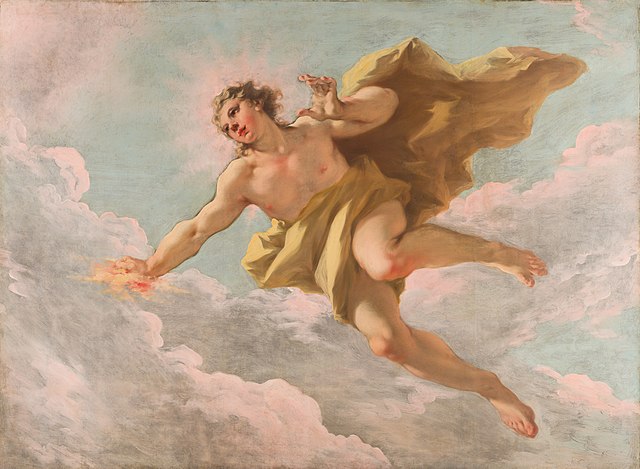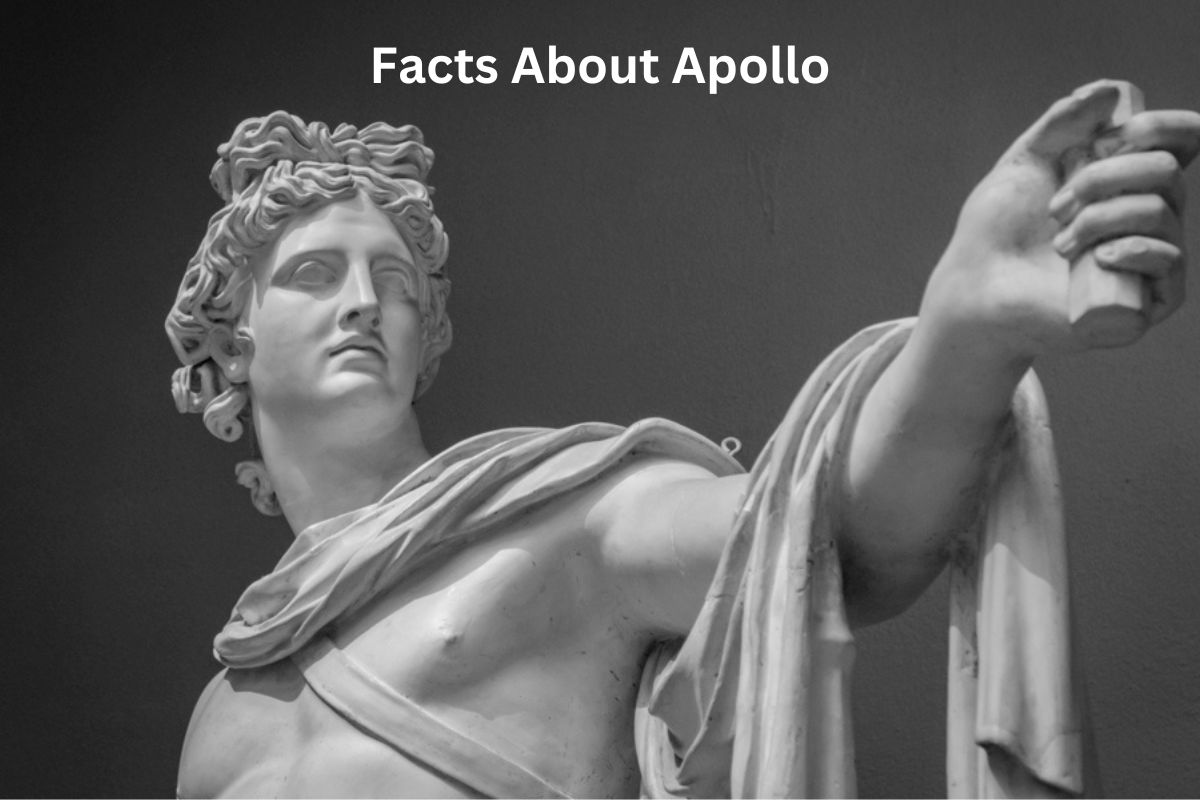Apollo, a prominent figure in Greek mythology, was one of the twelve Olympian gods and the son of Zeus and Leto.
He shared a close bond with his twin sister Artemis and possessed a wide array of attributes and roles. Apollo was associated with music, poetry, healing, prophecy, archery, and the sun.
His golden chariot symbolized his connection to the sun as the sun god. Apollo’s influence extended to diverse aspects of human life, ranging from artistic inspiration to oracular guidance.
With his multifaceted nature, Apollo held a significant place among the Greek gods and left a lasting impact on Greek mythology and culture.
Apollo Facts
1. Apollo was a Greek god
In Greek mythology, Apollo was one of the twelve Olympian gods, who resided on Mount Olympus. The Olympian gods were the principal deities of the Greek pantheon and were revered and worshiped by the ancient Greeks.

2. He was the son of Zeus and Leto
Apollo was born to Zeus, the king of the gods, and Leto, a Titaness. Zeus had numerous affairs and Leto became his lover, but their relationship was not accepted by Zeus’ wife, Hera.
Also Read: Facts About Artemis
Leto faced Hera’s wrath during her pregnancy, and it was said that she wandered for a long time before finding a safe place to give birth to Apollo and Artemis.
3. Apollo had a twin sister named Artemis
Artemis was born shortly after Apollo and was also a prominent figure in Greek mythology. She was the goddess of hunting, wilderness, and the moon.
Also Read: Hera Facts
Apollo and Artemis shared a close bond, and they were often depicted together in various mythological stories and artwork.
Despite being twins, they had distinct roles and domains of influence within Greek mythology.
4. He was associated with music, poetry, and healing
Apollo was renowned for his multifaceted talents. As the god of music and poetry, he was often depicted playing the lyre, a stringed musical instrument. Apollo was believed to inspire poets, musicians, and artists, and he was often invoked for creative inspiration.
Additionally, Apollo was associated with healing and medicine. He was believed to possess the power to both inflict and cure diseases, and his temples often served as places of healing and sanctuary.
5. Apollo was often depicted with a laurel wreath on his head
In many artistic representations, Apollo is shown wearing a laurel wreath, which was a crown made of laurel leaves. The laurel wreath was a symbol of victory, accomplishment, and excellence.
It was also associated with poetic and prophetic inspiration, further emphasizing Apollo’s connection to these domains.

6. He was known as the god of the sun
Apollo was closely associated with the sun and often referred to as the sun god. He was believed to drive a golden chariot across the sky, pulling the sun with him, which symbolized the rising and setting of the sun.
This association with the sun represented light, warmth, and vitality. Apollo’s solar symbolism also extended to concepts of enlightenment, enlightenment, and intellectual illumination.
7. Apollo was skilled in archery
Apollo was renowned for his exceptional archery skills. He was often depicted carrying a bow and a quiver of arrows. As the god of archery, he was not only a masterful archer but also a teacher and patron of the sport.
Apollo’s archery skills symbolized precision, focus, and agility, making him a revered figure in the realm of warfare and hunting.
8. He was associated with the Oracle of Delphi
Apollo had a significant connection to the Oracle of Delphi, one of the most famous and respected oracles in ancient Greece.
The oracle was believed to be a conduit for Apollo’s prophecies, offering guidance, predictions, and advice to those seeking knowledge about the future.
People from all over Greece would travel to the Oracle of Delphi to consult the priestess, who would enter a trance-like state to communicate Apollo’s messages.
9. Apollo had romantic relationships and love affairs
Apollo was known for his numerous love interests and romantic encounters in Greek mythology. One of his most famous love stories was with Daphne, a nymph who was transformed into a laurel tree to escape his pursuit.
Apollo’s romantic relationships often had mythological significance and conveyed different aspects of his character and influence.
10. He had various roles and influences in Greek mythology
Apollo’s sphere of influence extended across a wide range of domains. He was associated with music, poetry, healing, prophecy, archery, the sun, and more.
Apollo’s multifaceted nature made him a complex and revered figure in Greek mythology, and his diverse roles reflected the diverse facets of human life and culture that he presided over. He was a symbol of creativity, enlightenment, guidance, and the pursuit of excellence in various aspects of life.
